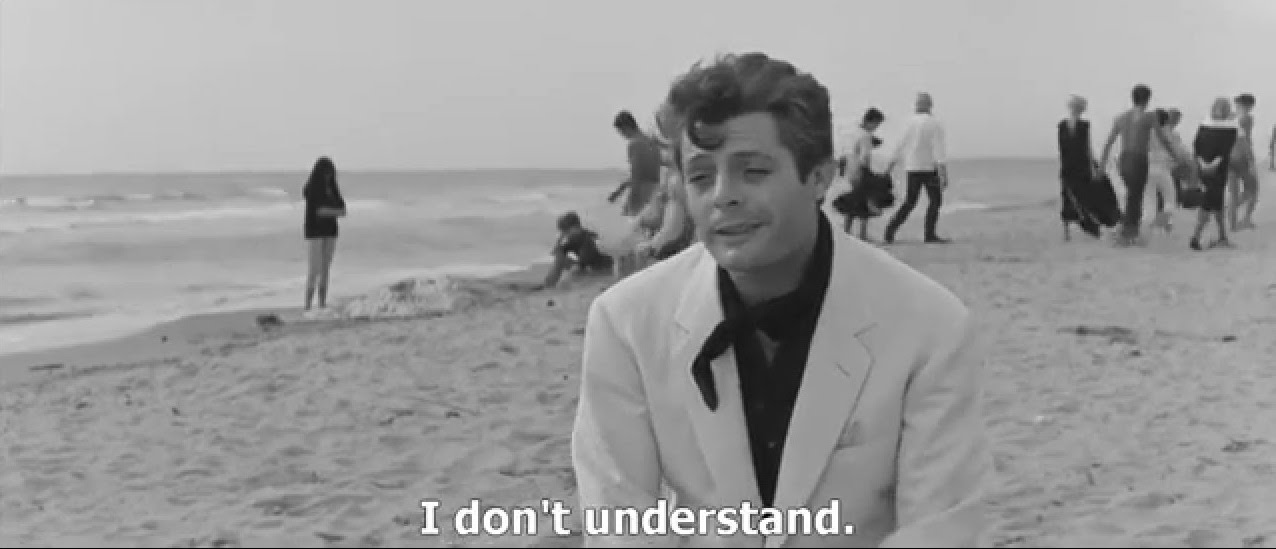Should I Watch Anime Dubbed Or Subbed
There is an interesting debate amid the anime community over whether anime serial should be watched dubbed in English language or in the original Japanese language with English Subtitles.
This discussion has been going for years and it is known as the "age-old question":Is it better to watch anime series dubbed or subbed?
Let'due south find out…
The anime community is divided on this topic. A part of them prefers to lookout man their evidence dubbed, in their native tongue, because subtitles divert their attention to the bottom of the screens, and that makes them miss the activeness.
On the other hand, arguments that watching anime in Japanese with English subtitles preserves the intended message of the show and honors the hard piece of work that Japanese voice actors put into their craft.
So, who is right and who is wrong?
After doing some research on this matter and getting some insights from my friends Ariel and Paul, (You'll meet'em later) I came to the conclusion that there's no better way to sentry anime, it just depends on your personal preferences.
If you're still deciding on whether to watch an anime series dubbed or subbed, and so keep reading because you'll learn why some people prefer subs and others dubs, and at the end, some insight on the hard work that goes into subtitling and dubbing anime serial.
Related Post: Subtitlers Are The Unsung Heroes of Filmmaking

Some Fans Prefer Subtitled Anime
Subbing (Subtitling) ways that the original language of the show is preserved and a written translation is placed at the lesser of the screen. This manner, the audience tin can read and empathise what the characters are saying while all the activeness occurs.
Anime fans have various reasons as to why they prefer subbing. To begin with, subtitling allows accurate translations to happen and this includes mannerisms and peculiarities of a character that may add to the story'southward plot.
A clear example of this is Naruto'southward catchphrase "Dattebayo" .
In the English language dubbed version, information technology is translated as "believe it," however, it doesn't necessarily translate similar that. Fifty-fifty in Japanese "Dattebayo" doesn't have an exact meaning, it could be translated equally "well" or "ya know."
Naruto uses this give-and-take at the end of a sentence because the creators added this to his unique style of spoken communication.
The other main reason some adopt anime with subs is that watching the subtitled versions of the shows honors the Japanese culture past preserving the deep respect that they have for their friends and older relatives.
To refer to them, the Japanese utilise honorifics such every bit -sama, -san, -chan, and -kun.
All these Japanese honorifics have different meanings and depending on which one they use, it will tell how they feel virtually that person. These honorifics rarely go translated into the English dubbed versions, therefore, information technology could imply some disrespect.
And the last (only not least) reason to watch anime subtitled is that die-difficult anime fans love to hear the excellent voice acting performance of the Japanese actors!
Others Prefer Dubbing
Dubbing is the process of removing the original vocal tracks, and recording the English translations on top of the scenes.
The process of dubbing is necessary considering some people do not like to read while they are watching. They experience that having to read the subtitles distracts them from the action, so they prefer watching a less-distracting version of the anime show in their native language.
Another adept reason why dubbing is the preferred manner to sentry anime is that some have access to the dubbed version of an anime show starting time.
That'south oft the instance with shows like the Dragon Ball series and Cowboy Bebop.
Related Mail service:Why Subtitling is Improve Than Dubbing: Every Unmarried Fourth dimension

The Work that Goes into Subbing and Dubbing
A more of import word that oftentimes gets overlooked, is the difficult work that goes behind subtitling and dubbing anime series.
To dig deeper on this, I asked Ariel Sanders and Pal Hollywood, they are both professionals and anime fans and they kindly shared their take on this topic with me.
Hither's what they had to say:
What I tin say, having studied film, is that using subtitles is definitely a lot easier to practise from a post-production standpoint and in some cases tin can be more aesthetically pleasing or stylistically correct (sometimes subtitles just experience 'correct').
The added benefit of subtitles is that they don't backbite from the original emotional tone or accent that the thespian (or vocalism thespian) used during the original take. This is imperative for visual media every bit the audio, level and tone of persons voice does a lot to indicate their emotions at the fourth dimension of delivery.
In some cases, such as with anime, there are simply some things that sound better in Japanese or merely cannot be said in English unless they're described in length – hence most of the lengthy monologues that are found in anime. Phrases like 'Yugen' and 'Shouganai' don't accept English translations and would accept to be explained in full for them to brand sense to an English speaker.
Yet, some may discover subtitles to be hassle and would rather spend their time watching the show than reading every line of dialogue simultaneously. In this example, a dub is probably the best option for you every bit you lot can appreciate the visual and sound aspects of the series comfortably.
In fact, some people really prefer dubs, either in full general or just for specific shows, for a number of reasons. Sometimes a graphic symbol may only be voiced better and some may prefer to come across the show in their domicile language. It actually depends on your own personal preferences. More often than non though, I tend to prefer subbed animes rather than dubbed ones for authenticity, but certain shows (Cowboy Bebop and Dragonball Z for instance) are more appealing in English language for me. Each to his/her own I suppose.
Ariel Sanders from MapleHolistics.com
—
"I call up the about of import matter it comes down to is capturing what the characters and story are really trying to say- and more than often than not, that essence is found in the original Japa nese. In that location'southward a lot of tonality and even words in Japanese that merely do not interpret into English that well, so dubs can often have characters saying or conveying ideas differently than how information technology was originally written.
I remember this very problem caused a lot of outrage in subtitle fans when the dubbed version of Shingeki no Kyojin (Attack on Titan) was released. Characters in the dub seemed very unlike than in the sub because they were translated to say very unlike things. In the end, if you're listening to the Japanese voices and reading the subtitles, less will be lost.
That being said, occasionally an anime volition be written with a Western setting or characters, and in that case, the dub tin can be better. Like in the case of Cowboy Bebop or Infinite Dandy, if at that place are characters speaking like Western cowboys or 50'south cool cats, their essence is going to shine through better in the dub."
Pal Hollywood from Airfoil Group
Conclusion
As yous can see, both sides have valid reasons as to why they prefer a sure mode to sentry anime series.
So I guess a good answer to the age-old question is… It but depends!
The answer is subjective because all anime fans have unlike preferences on how they similar to lookout man their shows.
I'd say:
"It doesn't thing if you watch anime dubbed or subbed. You can spotter it still you like as long as you connect with the story and relish the plot." – Camilo Atkinson.
Sayonara!
Source: https://www.daytranslations.com/blog/anime-dubbed-subbed/
Posted by: florencesontoort.blogspot.com

0 Response to "Should I Watch Anime Dubbed Or Subbed"
Post a Comment